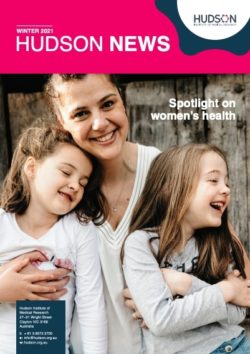Diagnosed with ovarian cancer at age 19, Vali Creus feared she would never have children.
Vali Creus wanted to have kids for as long as she could remember. So when she was diagnosed with ovarian cancer at 19, one of her first thoughts was: “What does this mean for my fertility?”
Known for its deadly stealth, ovarian cancer is a ‘silent killer’ because it is often asymptomatic. But as an elite athlete Vali knew there was something wrong. She was playing basketball at state level, while also studying anatomy and biology. She was a fit young woman who understood physiology and knew that she should be in peak physical condition. Instead, she was exhausted. All the time.
Vali had reported vague symptoms to doctors since she was about 16 but had only been prescribed paracetamol. If Vali has one regret, it’s that she wasn’t more assertive. She wonders whether her low-key style helped or hindered on the long road to an accurate diagnosis.
At 18, Vali found herself in front of yet another new doctor. By now she was nearing her wit’s end, ticking off her symptoms in a long list – intense and escalating pain, particularly in her lower back, erratic periods followed by bleeding for weeks, strange food allergies and aching, bone-crushing fatigue.
Fortunately, her new doctor ordered a barrage of tests, correctly diagnosing Vali with endometriosis. Ovarian cancer was found during surgery for this condition and effectively treated, achieving Vali’s first remission. The cancer recurred when Vali was 24, but constant monitoring meant this recurrence was detected early and, again, it was treated successfully. However, this time the treatment cost Vali her fertility. Both her ovaries were removed but one was frozen. Her doctors in 2003 anticipated that science would one day catch up and Vali would be able to achieve her dream of children.
At 27 Vali met the love of her life. They married four years later and the question of fertility again became front of mind. In 2013 Vali had the world’s first successful pregnancy using the pioneering tissue graft methodology developed by Melbourne scientists. She gave birth to her twin girls, Alexis and Kaia, in November that year.
Unfortunately, when Vali’s girls were born via caesarean doctors discovered the cancer had returned. It was removed in the same surgery and Vali, now 41, remains cancer free. But huge doses of chemotherapy have left her lungs permanently damaged. With the emergency of COVID-19, Vali is in a highrisk category.
“I’ve had a hard time, but I consider myself one of the lucky ones,” Vali says. “I’ve got a good prognosis. I’ve got my girls – these amazing little people. They’re too young to understand why they’re extraordinary – I’ll explain when they’re older. For now, they just know that they are special and Mummy was very lucky to have them.”

